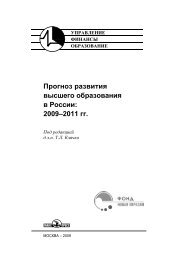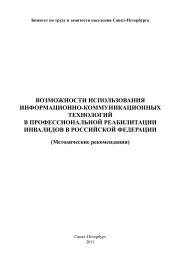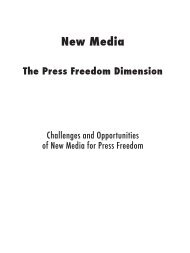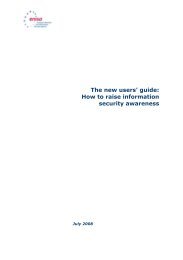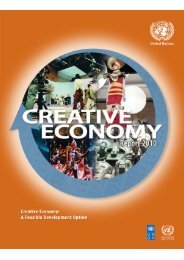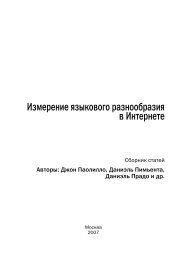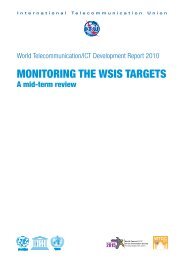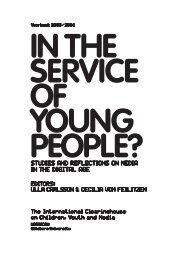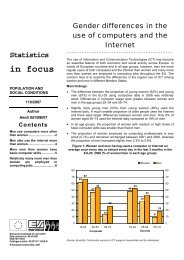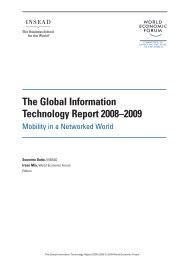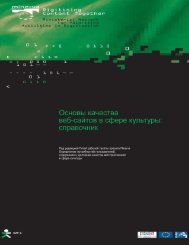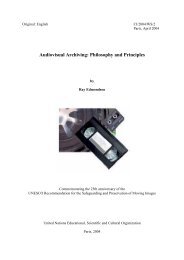Model curricula for journalism education for developing countries ...
Model curricula for journalism education for developing countries ...
Model curricula for journalism education for developing countries ...
You also want an ePaper? Increase the reach of your titles
YUMPU automatically turns print PDFs into web optimized ePapers that Google loves.
53<br />
Grading and assessment protocol: Students should hand in their anecdote each<br />
morning <strong>for</strong> recording. At least one piece a week from each student will be marked<br />
if the instructor has assistance; if not the instructor will mark a selection each week,<br />
to ensure that each student has seven or eight pieces marked during the term.<br />
Attendance and class participation: 10 %<br />
Two open-book exams: 30% + 30 %: total 60 %<br />
Group presentation: 30%<br />
Comments<br />
This syllabus is designed <strong>for</strong> the Bachelor’s degree level. In a syllabus <strong>for</strong> the<br />
Master’s degree level, the group presentations could be replaced with seminar<br />
classes <strong>for</strong> smaller groups (8 – 10 students each), looking at diverse topics and<br />
specializations related to the course. For a pre-university diploma course offered<br />
at a non-degree-granting institution, the group presentations could be replaced<br />
with tutorial classes, which would be useful to clarify concepts and instigate further<br />
discussions among the students.<br />
Contributed by Nalini Rajan, Dean of Studies, Asian College of Journalism,<br />
Chennai, India<br />
Foundations of Journalism: General Knowledge<br />
Level of the Course: First Year of Four-Year Undergraduate Degree<br />
In this course, students should gain a general idea of world history, and then go on<br />
to understand their country’s or region’s specific history. This is so that they may<br />
comprehend the processes that lead to dramatic events, like the partition of India,<br />
or the devastating civil war in Rwanda, or again, the recent resurgence of socialism<br />
in Latin America. From there, proceeding to identity politics, it is important to<br />
cover theories and practices connected to gender, race, caste, religion, culture, and<br />
understand how the struggle <strong>for</strong> these identities contributes to nation-building.<br />
Course Description: This includes basic knowledge of national and international<br />
history and an introduction to contemporary social and other issues of importance<br />
to journalists: gender, race, ethnicity, religion, social class, conflict, with training in<br />
applying analytical and critical techniques to news coverage of these issues.<br />
Mode: Combination of lectures, group analysis of texts, and two open-book exams.



